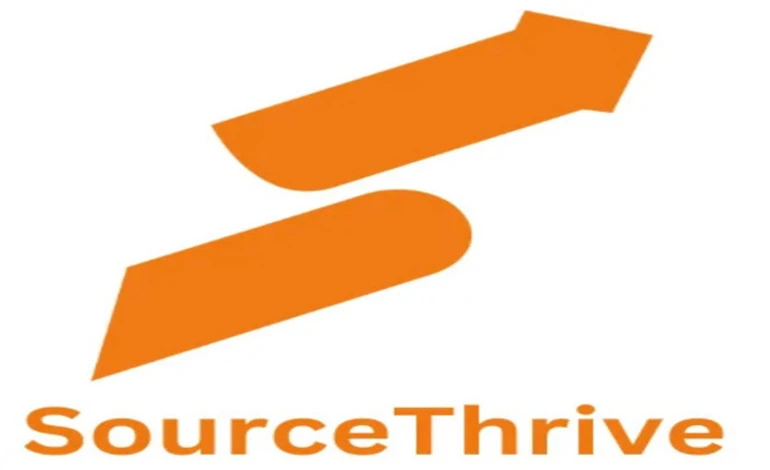In today’s fast-paced digital landscape, managing information efficiently is not just a benefit—it’s a necessity. From healthcare organizations and law firms to financial institutions and educational entities, companies are increasingly transitioning from traditional paper-based systems to streamlined digital formats. At the heart of this transformation lies the twin backbone of document scanning and indexing services. These two components work together to convert physical records into easily searchable, well-organized digital files that can be accessed quickly and securely.
But what exactly is document indexing, and why is it so critical in the modern workplace? Let's take a deep dive into the processes, benefits, and solutions related to scanning and indexing documents.

What is Document Indexing?
Document indexing is the process of tagging or labeling digital files with specific metadata that makes them easier to locate and retrieve. When a document is indexed, it is assigned data points such as document type, client name, invoice number, date, or any other relevant attribute depending on the business requirements. These attributes form the document index, which acts as a map to help users find documents quickly and accurately.
Think of it as the digital version of a library's card catalog. Without a proper index, locating a specific file among thousands of others becomes time-consuming and inefficient. With proper indexing, documents are not just digitized but transformed into easily accessible resources.
The Role of a Document Indexer
A document indexer plays a pivotal role in maintaining the integrity and usability of a digital document management system. This professional is responsible for reviewing scanned files and assigning appropriate tags and metadata based on predefined criteria. Depending on the complexity of the system and the diversity of documents, indexing may be done manually, automatically, or through a combination of both methods.
In automated systems, Optical Character Recognition (OCR) is often used to extract relevant information from scanned documents. However, human indexers still play an important role in verifying the accuracy of the indexed data and handling exceptions where automation may fall short.
Benefits of Document Indexing Services
Implementing robust document indexing services offers numerous advantages across industries:
- Improved Searchability: Properly indexed documents can be retrieved within seconds, saving time and reducing frustration.
- Enhanced Compliance: Many industries require strict adherence to regulatory standards regarding document storage and access. Indexing ensures records are maintained in a compliant and auditable manner.
- Cost Efficiency: Fast retrieval reduces labor hours spent searching for files, ultimately improving productivity and reducing operational costs.
- Disaster Recovery: Digitally indexed documents are easier to back up and restore, providing peace of mind in the event of a natural disaster or data breach.
- Streamlined Workflows: With categorized and searchable documents, employees can collaborate more effectively and make informed decisions faster.
File Indexing Service: What to Expect
A professional file indexing service typically includes a comprehensive suite of offerings, such as document preparation, high-resolution scanning, data extraction, indexing, and digital storage solutions. Whether you’re working with financial reports, employee records, client files, or legal contracts, indexed documents ensure that your data remains organized and secure.
In particular, businesses looking for indexing in accounting benefit greatly from structured document management. Accountants deal with invoices, receipts, ledgers, and financial reports daily. Having these documents indexed with relevant accounting metadata—such as transaction date, amount, or client name—simplifies audits, financial analysis, and compliance tasks.
Indexing Services Across Industries
Every industry has unique needs when it comes to indexing documents. For example:
- Healthcare: Indexing patient records with metadata like patient ID, visit date, and physician name.
- Legal: Tagging case files with client name, case number, and court date.
- Education: Organizing student records using enrollment ID, semester, and course codes.
Professional indexing services can be customized to meet the specific requirements of each sector. By doing so, organizations can maintain better records and deliver superior services to their stakeholders.
Key Features of Document Indexing Solutions
Modern document indexing solutions often come integrated with Document Management Systems (DMS) or Enterprise Content Management (ECM) platforms. These solutions provide a centralized hub for storing and managing indexed content, along with advanced search functions, version control, access permissions, and audit trails.
Some key features to look for in an effective indexing solution include:
- Customizable Index Fields: Tailor the indexing criteria to suit your organization’s specific data needs.
- Automated Capture Tools: Use OCR and machine learning to extract data accurately from scanned documents.
- Batch Processing Capabilities: Handle large volumes of documents quickly and efficiently.
- Integration with Existing Systems: Sync with CRMs, ERPs, and other business tools for seamless workflows.
- Scalability: Adapt the solution as your organization grows or as document volumes increase.
The Importance of Indexing in Digital Transformation
As organizations move toward complete digital transformation, index service providers become essential partners. It’s not enough to simply scan documents and store them in digital folders. Without indexing, the value of digitization is significantly diminished. Properly indexed documents empower teams to act on data quickly, whether it's retrieving a historical invoice, locating a compliance document, or referencing a project report.
Companies that invest in both scanning and indexing are more agile, better prepared for audits, and less prone to information loss.
Choosing the Right Document Indexing Partner
When selecting a partner for document indexing services, it's important to evaluate their track record, technological capabilities, and customization options. Look for providers who:
- Have experience across multiple industries.
- Use secure, encrypted systems for data handling.
- Offer flexible pricing and scalable solutions.
- Provide end-to-end services from scanning to indexing and digital archiving.
- Have excellent customer support and transparent service level agreements (SLAs).
A reliable partner can make the difference between a clunky document management system and a streamlined, high-performance digital archive.
How Indexed Documents Improve Business Intelligence
Beyond improving searchability and storage, indexed documents also enhance analytics and reporting capabilities. For example, indexing documents by project or department allows leaders to review trends, identify bottlenecks, and allocate resources more effectively. In this way, document indexing is not just about organization—it becomes a strategic asset that fuels better decision-making.
Common Challenges in Indexing Documents
Despite its benefits, indexing can present challenges:
- Volume and Variety: Large organizations may have to index thousands of documents daily, across a range of formats and languages.
- Data Accuracy: Poor data capture or tagging errors can compromise the effectiveness of the system.
- Compliance Requirements: Different industries have varied and strict requirements for how documents are indexed and stored.
Working with experienced professionals and using robust technology can mitigate these issues, ensuring a reliable and scalable document indexing infrastructure.
Final Thoughts
Document scanning and indexing services are foundational elements of effective digital data management. They convert paper records into smart digital assets that can be searched, accessed, and utilized with ease. Whether you’re a small business or a large enterprise, investing in a quality file indexing service helps safeguard your records, boost productivity, and support compliance efforts.
For businesses aiming to streamline operations and gain control over their information assets, there’s no better time to embrace professional document indexing solutions. With the right strategy and support, even the most paper-heavy environments can be transformed into efficient digital workplaces—making lost files, cluttered cabinets, and slow retrieval a thing of the past.
Sourcethrive provides the expertise and tools needed to help organizations modernize their document management systems from the ground up.


